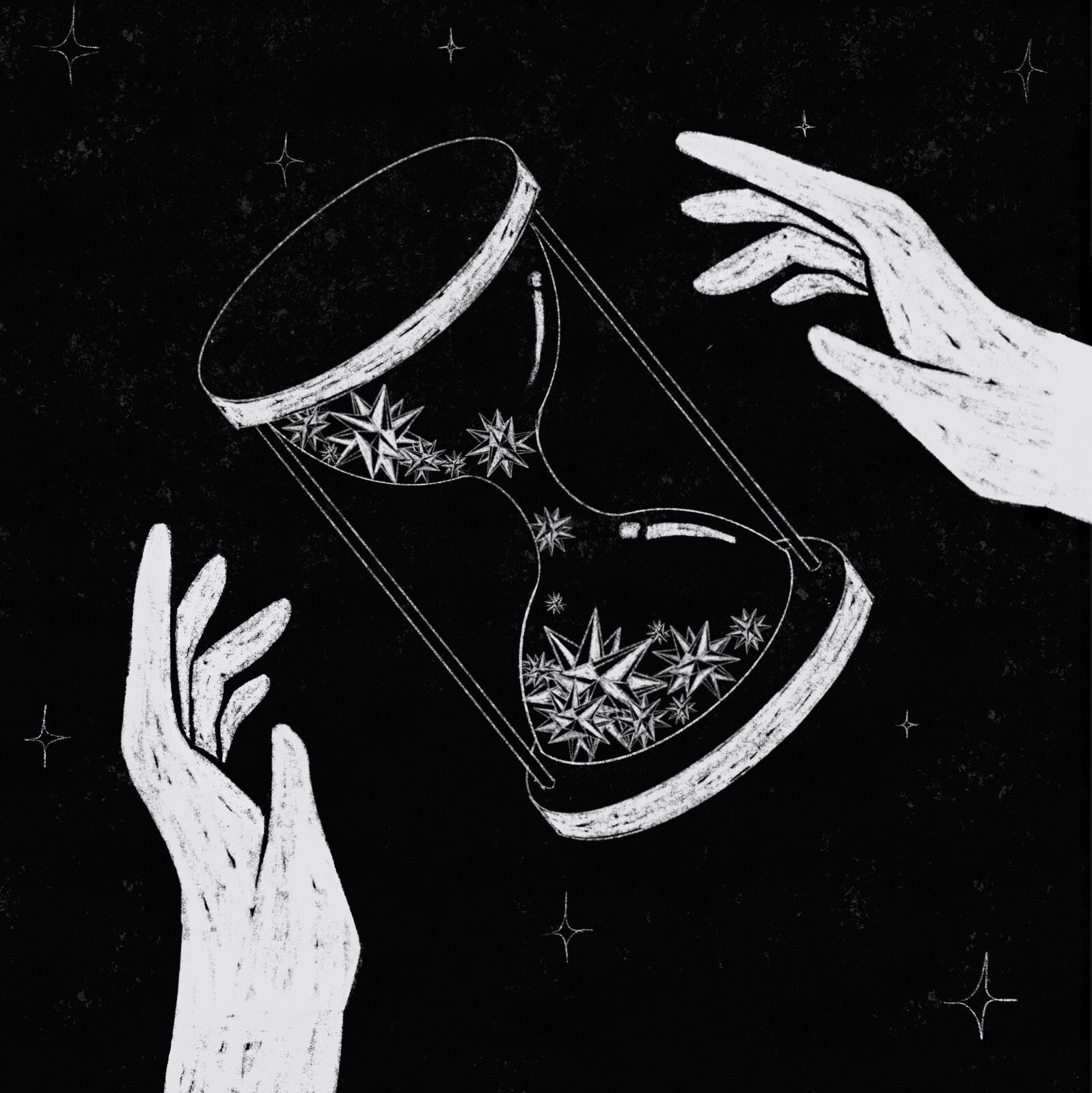Illustration © Rachael Olga Lloyd
I have struggled with compulsion. It can be a thin line between what is magic and what is obsessive. Every thought, every rota of ritual, has the potential to be interpreted in a self-aggrandising way: this repetition is because you are the centre of the observable universe (I have gone out with three men named Joe: Joes must have a thing for me). Or that we are at the mercy of fate, and have no agency over the endnote of our decisions: that these things happen to us, we don’t happen to them (I have gone out with three men named Joe: third time lucky).
I can’t remember the anecdote but remember commenting on the psychic nature of a situation, while my housemate doubted it was anything more than coincidence. How could I explain that sometimes I need to believe in something? I felt like a child whose favourite toy is suddenly and viciously taken away.
In ‘Ghost Story’ from Natasha Lennard’s Being Numerous: Essays on Non-Fascist Life, Lennard tells of the ghost that lives in her childhood bathroom. But in accounting for her ghost, she avoids ‘reducing him to nonexistence or empirical fact’. The ghost is ‘a substantive reminder to believe and disbelieve differently - to believe and disbelieve simultaneously’.
When I take pleasure in fortuity, when I choose to believe in a pattern gently underlying the synchronicity of things that could also be explained away with logic or reason, I mean that I desperately want a belief system that exists outside of capitalism.
As Lennard notes, ‘the explanation you choose for a phenomenon partly depends on your aims’. What is “magical” is something that would remain beyond or without a system that I never chose to partake in. It is a necessary connectivity. In most ways, it doesn’t matter if it is “true” or not.
In Caliban and the Witch, Silvia Frederici correlates the invention of capitalism with the witch-hunts: essentially (and to oversimplify for ease of explanation), witches could be anyone unwilling to perform the gruelling exploitation that capitalism demanded (though it was most often women).
From a capitalist perspective, ‘magic seemed a form of refusal of work, of insubordination, and an instrument of grassroots resistance to power’. The Sabbat— a meeting in the dark of those on the periphery—was portrayed ‘both as a monstrous sexual orgy and as a subversive political gathering’. One of the reasons for this was the ‘nocturnal dimension’, and that the Witches Sabbat was a ‘violation of the contemporary capitalist regularization of work-time’.
From my early twenties onwards, I have become increasingly jaded. I knew more about magic when I was a child and time hadn’t become swallowed by the strictures of productivity. Time is the most valuable commodity: it takes so much time to be well, to adduce knowing, to apprehend every loved one.
Now I am an adult, a kind of magic exists at junctures in how I perceive time: when something appears just when I need it. The meat of this magic may be a series of coincidences, but the feeling it accrues is something like power in a world of disempowerment.
My friend sends me a quote from a revolutionary poet the same morning the book by that poet arrives after I ordered it for her in secret. Putting this example of happenstance into words feels like a devaluation - what was a moment of connectivity between me and a loved one seems more like sheer chance. It is not that time was warped around just me and her (at the centre of experience), but that our perception of the world has the ability to show these moments up. It can be as true for us as it is for everyone.
Capitalism doesn’t hold such equalising truth. It has its own kind of “magic” if you consider it an immaterial force. But its power is limited in its accessibility. Its power only holds true under certain conditions. Other magic—magic democratised—has the authentic ability to bend time towards something that serves our joy rather than our disenchantment.

